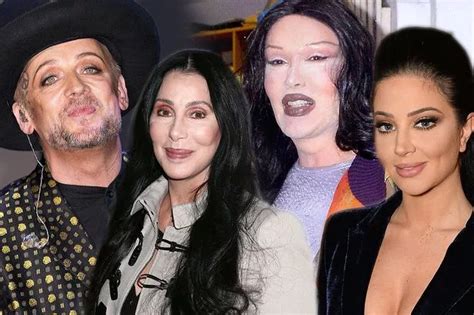
Dakota Johnson’s candid revelation of her dating “dealbreaker” – a partner’s aversion to cilantro – during a “Today” show appearance has ignited a flurry of online discussion and media attention, highlighting the actress’s forthright personality and sparking debate over the role of culinary preferences in romantic compatibility.
During a lighthearted segment on the NBC morning show, Johnson, promoting her new film “Daddio,” engaged in a conversation about her personal life, veering into the unexpected territory of her culinary pet peeves. When asked about her dislikes, Johnson didn’t hesitate to declare her strong aversion to cilantro, stating, “I hate cilantro with my whole heart. I think it is demonic and I think it’s garbage.” She then dropped the bomb that this aversion extended to her dating life: “I don’t understand how anybody can like cilantro. It’s insane… People who like cilantro are like, I don’t get you. It’s like, no, I don’t get you. And, I will not go out with you.” The unexpected “F-bomb,” though bleeped out during the broadcast, was easily decipherable and quickly spread across social media platforms, amplifying the impact of her statement.
Johnson’s remarks triggered a wave of reactions, ranging from amusement and agreement to disbelief and criticism. Many viewers found her candor refreshing, praising her willingness to express her opinions openly and honestly, even on a mainstream television program. Others, particularly cilantro enthusiasts, took offense, arguing that her strong dislike was unwarranted and even judgmental. The incident quickly evolved into a wider discussion about personal preferences, cultural differences in taste perception, and the potential for seemingly trivial matters to influence interpersonal relationships.
The “Today” show appearance wasn’t Johnson’s first foray into expressing strong opinions about food. She has previously discussed her dietary habits and preferences in various interviews, often highlighting her focus on healthy eating and her willingness to experiment with different cuisines. However, her explicit declaration of cilantro aversion as a dating dealbreaker marked a new level of candor, turning a simple food dislike into a point of potential romantic incompatibility.
The online reaction to Johnson’s statement was immediate and widespread. Social media platforms buzzed with comments, memes, and polls related to cilantro preference. The hashtag #CilantroDebate trended on Twitter, with users sharing their own experiences and opinions on the herb. News outlets and entertainment websites picked up the story, further amplifying its reach and sparking further discussion.
Some commentators framed Johnson’s remarks as a lighthearted joke, suggesting that her statement was intended to be humorous and not taken too seriously. Others argued that her preference, however strong, was a valid personal choice and that she was entitled to express it without judgment. However, some critics accused her of being insensitive to those who enjoy cilantro, arguing that her strong language (“demonic,” “garbage”) was unnecessarily harsh and potentially offensive.
The incident also raised questions about the increasing pressure on celebrities to maintain a carefully curated public image. In an era of heightened social media scrutiny, public figures are often hesitant to express controversial opinions, fearing backlash from fans and critics. Johnson’s willingness to deviate from this norm, even in a seemingly minor way, was seen by some as a refreshing act of authenticity.
The impact of Johnson’s “Today” show appearance extends beyond the immediate controversy surrounding cilantro. It serves as a reminder of the power of personal preferences to shape our social interactions and relationships. While culinary compatibility may seem like a trivial matter, it can reflect deeper values and beliefs about food, culture, and lifestyle.
Furthermore, the incident highlights the evolving role of celebrities in contemporary society. No longer confined to traditional forms of entertainment, public figures are increasingly using social media and other platforms to connect with their audiences on a more personal level. This increased accessibility can lead to both positive and negative outcomes, as demonstrated by the mixed reactions to Johnson’s candid remarks.
In conclusion, Dakota Johnson’s “F-bomb” on “Today” about her cilantro aversion has sparked a lively debate about personal preferences, celebrity culture, and the role of food in relationships. While the incident may seem trivial on the surface, it reflects deeper trends in contemporary society, highlighting the increasing importance of authenticity, the power of social media, and the enduring appeal of celebrity candor. The incident underscores how seemingly minor preferences can become major points of discussion in an increasingly interconnected world, further solidifying Johnson’s image as an outspoken and authentic personality.
Expanding on the Themes and Context:
Dakota Johnson’s cilantro declaration isn’t merely about disliking a particular herb; it touches upon broader themes of personal identity, social dynamics, and the evolving landscape of celebrity culture. To fully understand the significance of her statement, it’s crucial to delve into the science behind taste perception, the cultural significance of cilantro, and the pressures faced by public figures in the age of social media.
The Science of Cilantro Aversion:
The reason why some people despise cilantro while others enjoy it is rooted in genetics. A specific gene, OR6A2, plays a crucial role in detecting aldehydes, which are compounds found in cilantro and also in soap. People with a certain variation of this gene are more sensitive to these aldehydes, leading them to perceive cilantro as having a soapy or unpleasant taste.
Studies have shown that the prevalence of this gene variation varies across different populations. For example, people of East Asian descent are more likely to have the gene variation that makes them dislike cilantro, while those of Middle Eastern, Latin American, and South Asian descent are less likely to have it.
Therefore, Johnson’s aversion to cilantro is not simply a matter of personal preference; it’s partly determined by her genetic makeup. This scientific explanation helps to contextualize the debate and provides a more nuanced understanding of why people have such different reactions to the herb.
Cilantro’s Cultural Significance:
Cilantro, also known as coriander, is a widely used herb in many cuisines around the world, particularly in Latin American, Asian, and Middle Eastern dishes. It’s a staple ingredient in salsas, guacamole, curries, and pho, among other things. Its bright, citrusy flavor adds a fresh and vibrant element to these dishes.
In many cultures, cilantro is not just a food ingredient; it’s also a symbol of tradition, community, and cultural identity. For example, in Mexico, cilantro is often associated with family gatherings and celebrations. Its presence in traditional dishes evokes feelings of nostalgia and belonging.
Therefore, when Johnson expresses her strong dislike for cilantro, she’s not just rejecting a particular herb; she’s also potentially alienating herself from people who have a deep cultural connection to it. This cultural dimension adds another layer of complexity to the debate and highlights the importance of being mindful of cultural differences when expressing personal preferences.
Celebrity Authenticity in the Age of Social Media:
In the past, celebrities were often presented as idealized versions of themselves, carefully crafted by public relations teams and media outlets. However, in the age of social media, there’s an increasing demand for authenticity and transparency. People want to see celebrities as relatable and genuine, flaws and all.
This demand for authenticity has led many celebrities to embrace social media as a way to connect with their fans on a more personal level. They share glimpses into their daily lives, express their opinions on social and political issues, and engage in direct interactions with their followers.
However, this increased accessibility also comes with risks. Celebrities are under constant scrutiny, and any misstep or controversial statement can quickly go viral and damage their reputation. Therefore, they have to carefully balance the desire for authenticity with the need to maintain a positive public image.
Johnson’s “Today” show appearance can be seen as an example of this tension. On the one hand, her candid remarks about cilantro were refreshing and relatable, demonstrating her willingness to be honest and unscripted. On the other hand, her strong language and seemingly judgmental tone sparked controversy and alienated some viewers.
Ultimately, the success of a celebrity’s attempt at authenticity depends on their ability to connect with their audience on a genuine level, while also being mindful of the potential consequences of their words and actions. Johnson’s cilantro declaration may have been controversial, but it also generated a lot of attention and sparked a conversation about personal preferences and cultural differences.
The Broader Implications:
Dakota Johnson’s seemingly off-the-cuff comment highlights several important aspects of modern society:
- The Power of Shared Experiences (and Aversions): Human beings are social creatures. We bond over shared interests, hobbies, and even dislikes. Johnson’s cilantro comment resonated because it tapped into a pre-existing divide. Those who hate cilantro felt validated, while those who love it were perhaps amused or slightly offended. This illustrates how even something as trivial as a food preference can become a social marker.
- The Democratization of Opinion: Social media has given everyone a platform to voice their opinions, no matter how niche or unconventional. Johnson’s comment, amplified by the “Today” show and subsequent media coverage, shows how easily a personal preference can become a widespread topic of discussion.
- The Performative Nature of Authenticity: The demand for authenticity from celebrities creates a paradox. They are pressured to be “real” while simultaneously navigating the constraints of public image and brand management. Johnson’s statement, whether genuinely felt or partially performative, contributes to this complex dynamic.
- The Micro-Divisions of Culture: Our society is increasingly fragmented into smaller and smaller groups, often defined by shared interests, values, and even dislikes. Johnson’s cilantro comment highlights how these micro-divisions can extend to seemingly trivial matters like food preferences, reflecting a broader trend of social segmentation.
- The Enduring Allure of Celebrity Culture: Despite criticisms of celebrity worship, people remain fascinated by the lives and opinions of famous individuals. Johnson’s comment, despite its relative insignificance, generated widespread media coverage and social media chatter, demonstrating the enduring power of celebrity culture.
Digging Deeper into Dakota Johnson’s Persona:
To fully understand the reaction to Johnson’s comments, it is important to consider her public persona. Johnson has cultivated an image of being down-to-earth, witty, and unpretentious. She often engages in self-deprecating humor and doesn’t shy away from discussing personal matters. This persona likely contributed to the positive reactions to her cilantro comment, as many viewers saw it as a refreshing display of honesty and authenticity.
However, it is also worth noting that Johnson comes from a famous family. Her parents are actors Melanie Griffith and Don Johnson, and her grandmother is actress Tippi Hedren. This privileged background may have made her seem out of touch to some viewers, particularly those who are struggling with more serious issues than cilantro preferences.
Ultimately, the reaction to Johnson’s comments reflects the complex and often contradictory expectations that society places on celebrities. They are expected to be both relatable and aspirational, authentic and polished. Navigating these expectations can be challenging, and Johnson’s cilantro comment serves as a reminder of the constant scrutiny that public figures face.
Examining the “Today” Show’s Role:
The “Today” show, as a mainstream morning program, plays a significant role in shaping public opinion and setting the cultural agenda. By featuring Johnson’s cilantro comment, the show amplified its reach and contributed to the widespread discussion.
The show’s producers likely saw Johnson’s comment as a lighthearted and entertaining segment that would appeal to a broad audience. However, they may not have fully anticipated the controversy that it would generate.
The incident raises questions about the responsibility of media outlets in amplifying celebrity opinions, particularly when those opinions are potentially divisive or insensitive. While the “Today” show has a right to report on Johnson’s comments, it also has a responsibility to provide context and perspective.
The Future of Celebrity Commentary:
Dakota Johnson’s cilantro comment is just one example of how celebrities are using their platforms to express their personal opinions. As social media continues to evolve, it is likely that we will see even more celebrities engaging in this type of commentary.
Whether this is a positive or negative trend is a matter of debate. On the one hand, it can be seen as a way for celebrities to connect with their fans on a more personal level and to use their influence to promote important causes. On the other hand, it can also be seen as a form of self-promotion or as a way for celebrities to insert themselves into conversations where they may not have relevant expertise.
Ultimately, the impact of celebrity commentary will depend on the individual celebrity and the specific issue at hand. However, it is clear that celebrities will continue to play a significant role in shaping public opinion and driving cultural conversations.
The Enduring Power of Food Preferences:
Finally, Dakota Johnson’s cilantro comment underscores the enduring power of food preferences. Food is not just a source of sustenance; it is also a cultural marker, a social connector, and a source of personal identity.
People often have strong emotional attachments to certain foods, and these attachments can be shaped by childhood experiences, cultural traditions, and personal values. When someone expresses a strong dislike for a particular food, it can be interpreted as a rejection of those values or traditions.
This is why Johnson’s cilantro comment resonated with so many people. It touched upon a deep-seated emotional connection to food and highlighted the potential for even seemingly trivial preferences to become points of contention.
Frequently Asked Questions (FAQ):
Q1: What exactly did Dakota Johnson say about cilantro on the “Today” show?
A1: Dakota Johnson stated that she “hate[s] cilantro with my whole heart,” calling it “demonic” and “garbage.” More significantly, she declared that she “will not go out” with someone who likes cilantro, considering it a dating dealbreaker.
Q2: Why is cilantro such a divisive herb?
A2: The divisiveness of cilantro is largely due to genetics. A gene called OR6A2 affects the perception of aldehydes, which are found in both cilantro and soap. People with a specific variation of this gene are more sensitive to these aldehydes, leading them to perceive cilantro as having a soapy or unpleasant taste.
Q3: How did people react to Dakota Johnson’s cilantro comments?
A3: Reactions were mixed. Some people found her candor refreshing and humorous, agreeing with her dislike of cilantro. Others, particularly cilantro enthusiasts, were offended by her strong language and considered her statement judgmental. The comments sparked a widespread online debate about personal preferences and culinary compatibility.
Q4: Has Dakota Johnson spoken about her food preferences before?
A4: Yes, Dakota Johnson has previously discussed her dietary habits and food preferences in various interviews, often highlighting her focus on healthy eating and her willingness to experiment with different cuisines. However, her explicit declaration of cilantro aversion as a dating dealbreaker was a new level of candor.
Q5: What is the broader significance of this incident?
A5: Beyond the immediate controversy surrounding cilantro, the incident highlights the power of personal preferences to shape social interactions and relationships. It also reflects the evolving role of celebrities in contemporary society, their increased accessibility, and the potential for both positive and negative outcomes from their public statements. It underscores how seemingly minor preferences can become major points of discussion in an increasingly interconnected world. It also touches upon themes of authenticity, the pressures of social media, and the enduring power of food in cultural identity.









